The Ukrainian presidential election campaign officially kicks off on Dec. 31, but prospective candidates are already touring the regions, speaking at public events, and plastering billboards with their faces and slogans.
The most active are: member of parliament Oleg Lyashko, leader of the 21-member Radical Party; Yulia Tymoshenko, leader of the 20-member Batkivshchyna Party; President Petro Poroshenko, and Lviv Mayor Andriy Sadovyi, according to a report by OPORA civil network released on Oct. 31.
While early campaigning is common in democracies, it may undermine the fairness of the expected March 31 election and the ability of voters to assess funding sources and whether candidates have misused government administrative resources.
Billboard slogans
The clear leaders of outdoor advertisements are Poroshenko and Tymoshenko, the former prime minister defeated in the 2014 election that followed President Viktor Yanukovych’s abdication from power, the report found.
Poroshenko re-election slogan is the pithy: “Army. Language. Faith.” It promotes Ukraining military power as Russia’s war approaches its fifth year in February, the independence of the Ukrainian Orthodox Church from the Russian one and the dominance of Ukrainian language over Russian.
His main opponent in the upcoming election, Tymoshenko, is matching him numerically with her slogans: “The new course for Ukraine,” “People’s Constitution,” and “The future of Ukraine in the EU, the security of Ukraine is in NATO.”
Poroshenko and Tymoshenko are closely followed by Lviv Mayor Andriy Sadovyi, whose slogan states “Sadovyi is next,” Osnova party founder Serhiy Taruta promising “The country will work,” and Radical Party leader Oleg Lyashko offers a tough choice “Jobs or the IMF slavery.”
Member of parliament Yevhen Murayev entered the billboard race with a call to action “We need our people” where the word “our” refers to the name of his party Nashi (Ours.) Some of his billboards were vandalized: the name of the party evoked associations with Vladimir Putin’s youth movement Nashi.
And this week, Kyivans noticed new billboards for former Prime Minister Arseniy Yatsenyuk, who reminded the public of his accomplishments leading the government from 2014 to 2016 with the slogan “We stopped the default in 2014.” Another slogan: “Ukrainian language, cinema, song,” somewhat echoes Poroshenko’s.
OPORA public network analyst Oleksandr Klyuzhev says the amount of money spent on early campaigning and, most importantly, the sources of funding are unknown because, by law, candidates have to establish election campaign funds only after the official campaign launch and registration with the Central Election Commission.
“We recommend candidates who have already begun campaigning to disclose the expenses and sources of funding,” he said. “It should be at their own initiative.”
Trips to regions
According to the observers, Oleg Lyashko traveled more than any other potential candidate in the past two months. In September and October, the member of parliament made 16 trips to 13 regions, visited 27 towns and villages, and held 44 events. He went to Dnipropetrovsk Oblast three times in the given time period.
For some reason, Cherkasy Oblast was the most popular destination among the future candidates. They also often visited Kirovohrad, Ivano-Frankivsk, and Odesa regions.
Klyuzhev of OPORA said that it was premature to make conclusions about why some places were prioritized over others. “It seems chaotic at this stage,” he said.
During their trips to regions, candidates usually called press conferences and met with local authorities, civil activists, and youth organizations. They routinely visited schools, kindergartens, hospitals, and military bases. In many cases, local authorities were directly involved in the regional visits of some candidates, raising watchdogs’ concerns over misuse of administrative resources.
Future candidates also regularly appeared at public events. And Tymoshenko and Poroshenko lead the race here too.
For instance, Poroshenko took part in an international economic forum in Kharkiv and a book publishers forum in Lviv. Tymoshenko attended the centennial anniversary of the Dnipro National University. In September, Poroshenko gave a keynote speech at the Yalta European Strategy conference in Kyiv, while Tymoshenko — in the company of another potential candidate, former Defense Minister Anatoly Grytsenko, spoke at a panel at the same conference.
The pitfall of campaigns that start ahead of time is the faded boundary between one’s official capacity and campaigning.
“Candidates have to separate their work-related obligations from their pre-election activity, especially before the official start of the campaign,” Klyuzhev said.
Tymoshenko also held two national forums in June and in October, where she presented her platform titled “The new course for Ukraine” and shared her strategy for peace and security in the Donbas.
Participation in charity events or making gifts to local organizations is another grey practice since it is not settled in the current election law. During his trip to Mariupol, Oleg Lyashko and the Mayor Vadym Boychenko visited a technical college under renovation and handed over the keys to 20 apartments for internally displaced persons. In Zhytomyr Oblast, Serhiy Taruta presented a specialized equipment to a rehabilitation center for disabled kids.
Intrigue
While most of potential candidates for the Ukrainian presidency are experienced politicians, frontman of Okean Elzy rock band, Svyatoslav Vakarchuk, and comedy actor Volodymyr Zelensky, both outspoken commentators on the current state of affairs in the country, might run too.
In a recent poll by Kyiv-based research center Active Group, Zelensky surprisingly outranked President Poroshenko. Tymoshenko lead with 15.4 percent followed by Zelensky with 9.9 percent and Poroshenko at 8.9 percent. Singer Vakarchuk ranked fifth in the poll.
Zelensky fueled speculation about his eventual candidacy in the latest episode of his comedy show Vecherny Kvartal. Aired on 1+1 Channel on Oct.27, the episode reportedly became the most watched television show of the fall with 5.9 million viewers.
After a series of jokes about his eligibility for the presidency (“I have a law degree. It’s an advantage. I don’t have political experience. It’s a big advantage.”) he kept the intrigue alive by finishing his skit with the line “I officially announce I am not running for pre… or actually we’ll see. ”
In the meantime, he is touring with Kvartal 95 until the end of the year: Kharkiv, Poltava, Dnipro, Zaporizhzhya, Mykolayiv, Kherson, and Odesa — mainly Russianspeaking cities. Zelensky mostly performs in the Russian language. Additionally, he is going on a tour abroad to Cyprus and Israel.
The musician Vakarchuk has spoken publicly about Ukraine’s future, politics, and rule of law, which some interpreted as a sign of presidential ambitions.
Speaking at a public lecture in Kharkiv on Oct. 29, he said that debates about his candidacy for president insulted him and he rather sees himself as a civic leader.
“I don’t consider myself a politician,” said Vakarchuk who tried a lawmaking position in 2007–2008 but stepped down. “I consider myself an unindifferent citizen of Ukraine. We’ll see how it goes.”
“I’m not interested in the office. I’m interested in changes in the country,” he said adding that he was ready to sacrifice music for the sake of changing the country for the better. “Who can change the political culture is more important than who becomes the president.”
20 potential candidates for Ukrainian president
Petro Poroshenko, president, Solidarnist
Yulia Tymoshenko, member of parliament, Batkivshchyna
Andriy Sadovyi, mayor of Lviv, Samopomich
Volodymyr Zelensky, comedy actor
Svyatoslav Vakarchuk, Okean Elzy lead singer
Michel Terestchenko, ex-mayor of Hlukhiv
Oleg Lyashko, member of parliament, Radical Party
Arseniy Yatsenyuk, ex-prime minister, People’s Front
Yevhen Murayev, member of parliament, Nashi
Serhiy Taruta, member of parliament, Osnova
Anatoliy Grytsenko, ex-defense minister, Civil Position
Yuriy Boyko, member of parliament, Opposition Bloc
Oleksandr Shevchenko, member of parliament, Ukrainian Alliance of Patriots
Roman Bezsmertnyi, Agrarian Party
Viktor Chumak, member of parliament, no party affiliation
Ruslan Koshulynskyi, member of Lviv Oblast Council, All-Ukrainian Union Svoboda
Yuriy Derevyanko, member of parliament, The Movement of New Forces
Dmytro Dobrodomov, member of parliament, People’s Control
Valentyn Nalyvaychenko, ex-head of Security Service of Ukraine, Spravedlivist
Roman Nasirov, former head of State Fiscal Service
You can also highlight the text and press Ctrl + Enter


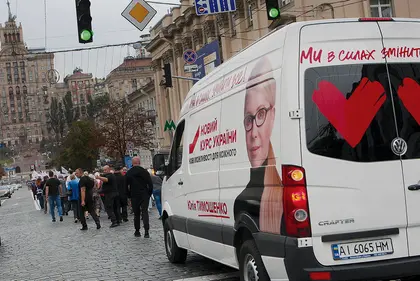
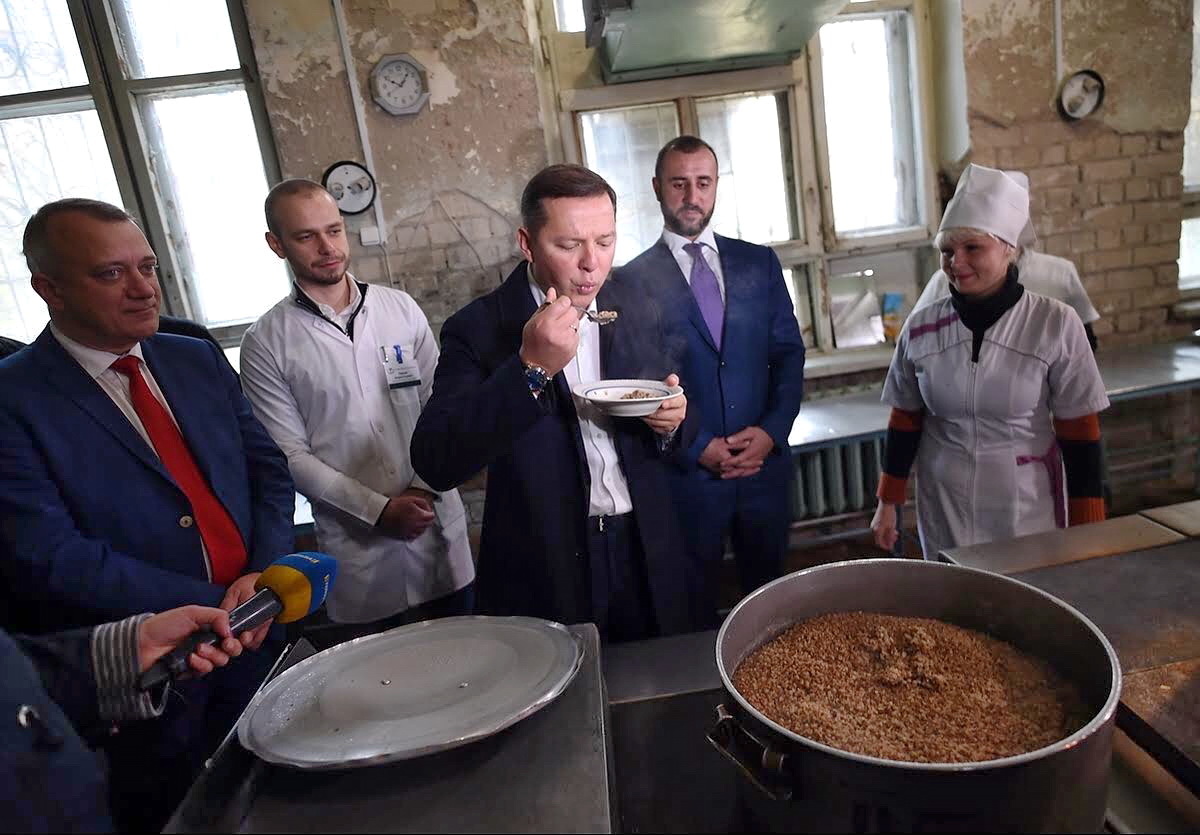

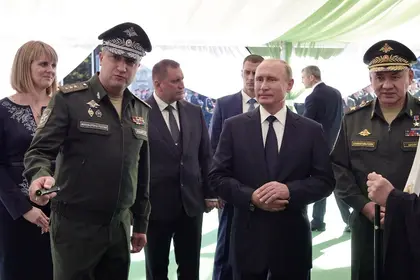
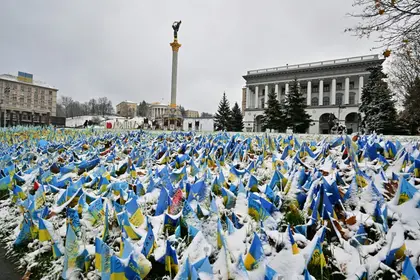
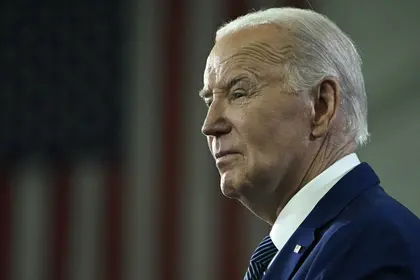
Comments (0)